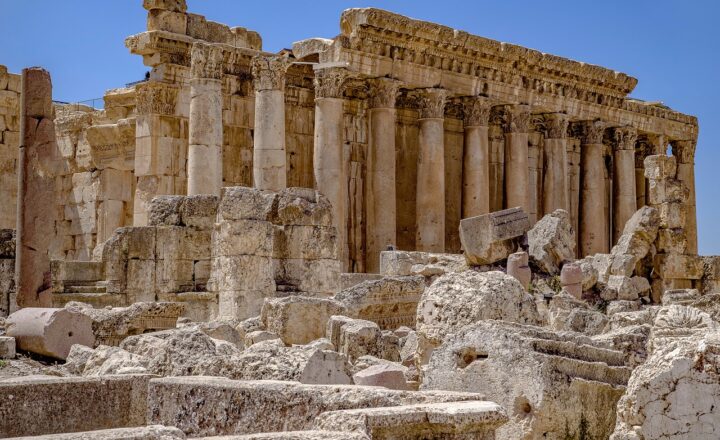
The Akkadian Empire, often described as the world’s first empire, dominates our understanding of ancient civilization through its remarkable achievements and its mysterious decline. Established in Mesopotamia around 2334 BCE by Sargon of Akkad, the empire stretched from the Persian Gulf to the Mediterranean Sea, unifying diverse peoples under a centralized system of governance. The question of why this monumental empire collapsed remains a point of discussion among historians and archaeologists alike.
1. Introduction to the Akkadian Empire
The Akkadian Empire paved the way for future civilizations by introducing administrative innovations, art, and literature. Under Sargon’s reign, the empire experienced a flourishing of urban life, trade, and military conquests. The capital, Akkad, became one of the most significant cities of its time.
Sargon’s successors continued his legacy, leading to further expansions and the consolidation of power. However, by the end of the 22nd century BCE, the empire began to unravel. Understanding the factors contributing to its downfall offers valuable insights into the fragility of empires built upon conquest and administration.
2. Key Factors in the Rise of the Akkadian Empire
To comprehend the fall of the Akkadian Empire, it is vital to first acknowledge the conditions that led to its rise. Several factors played crucial roles in establishing the empire, including:
- Military Conquests: Sargon’s military strategies allowed him to conquer rival states in Sumer and beyond, uniting them under Akkadian rule.
- Innovative Governance: Sargon implemented an effective bureaucratic system, establishing provincial governors who oversaw local administration, ensuring order and tribute collection.
- Cultural Integration: The Akkadians embraced the Sumerian culture, adopting their writing, mythology, and religious practices, fostering a shared identity across the empire.
- Economic Prosperity: Control over trade routes and agricultural production led to significant wealth, fostering urban growth and cultural advancements.
This powerful combination set the seeds for an influential empire but also laid the groundwork for vulnerabilities that would eventually contribute to its downfall.
3. The Decline: A Multifaceted Collapse
The decline of the Akkadian Empire was gradual and multifaceted. Several interconnected factors contributed to its eventual collapse:
- Environmental Changes: Archaeological evidence suggests that a shift in climate led to prolonged droughts, which severely impacted agricultural productivity. The reliance on irrigation in a fragile ecosystem made the society vulnerable to climate fluctuations. Increased aridity may have led to food shortages, exacerbating tensions among the populace.
- Political Instability: The centralization of power often marginalizes local governance, leading to resentment. Following the death of Sargon’s grandson, Naram-Sin, the empire suffered from weak leadership and infighting among factions. This discord made it difficult to maintain control over vast territories.
- External Pressures: The invasion of neighboring peoples, such as the Gutians from the Zagros Mountains, posed significant military threats. As loyalty weakened, defections increased, and rebellious states emerged.
- Economic Decline: As agricultural production decreased due to environmental factors, trade became less lucrative. This economic strain weakened the empire’s ability to support a centralized military, further stoking internal discord.
These factors combined led to the eventual collapse of the Akkadian Empire, leaving behind ruins and inspiring countless legends.
4. The Aftermath: Legacy of the Akkadian Empire
After the fall of Akkad, the region entered a period of fragmentation, characterized by city-states competing for power. However, the legacy of Akkad lived on, influencing subsequent civilizations in Mesopotamia:
- Cultural Transmission: Many elements of Akkadian culture persisted, including literature and administrative practices, which were adopted and adapted by later empires, such as the Babylonian and Assyrian empires.
- Linguistic Heritage: The Akkadian language became a lingua franca throughout Mesopotamia, influencing many local tongues and remaining in use for centuries.
- Historical Awareness: The story of the Akkadian Empire provided future generations with a sense of history, offering lessons in statecraft, governance, and the consequences of environmental neglect.
The fall of the Akkadian Empire serves as a cautionary tale highlighting the delicate balance necessary for the survival of civilizations.
5. Conclusion: Lessons from the Akkadian Empire
The Akkadian Empire, a profound chapter in the annals of human history, reminds us of the complex interplay between environmental factors, governance, and social cohesion. Its rise represents human innovation and ambition, while its fall teaches vital lessons about sustainability and resilience.
As we continue to analyze the factors contributing to the collapse of ancient empires, the account of Akkad serves as a warning and a source of inspiration for contemporary societies striving to build fair and enduring civilizations.
Understanding the conditions that allow for the rise and fall of empires is not just a study of the past; it is an exploration of our future and the choices we make today. Only by learning from history can we strive to avoid repeating its mistakes while embracing its lessons for a better tomorrow.







